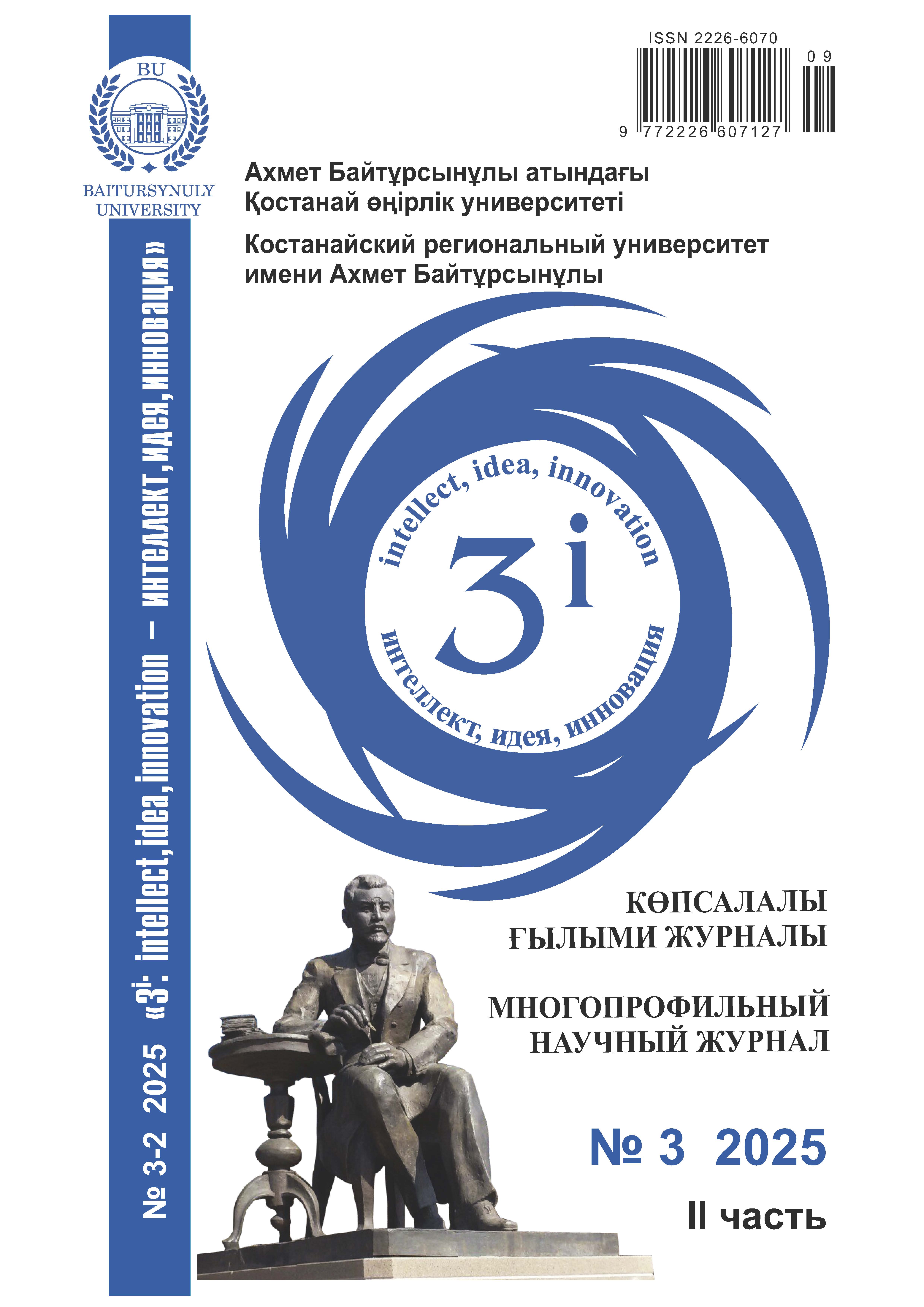ЦИФРЛЫҚ ОРТАДА БІЛІМ АЛУШЫЛАРДЫҢ КӘСІБИ ӨЗІН-ӨЗІ АНЫҚТАУЫ: ПСИХОЛОГИЯЛЫҚ-ПЕДАГОГИКАЛЫҚ ТАЛДАУ ЖӘНЕ IT-ПЛАТФОРМАНЫ ЖОБАЛАУ НЕГІЗДЕРІ
DOI:
https://doi.org/10.52269/KGTD253216Кілт сөздер:
кәсіби өзін-өзі анықтау, мансаптық кеңес беру, білім алушылар, IT-платформа, білім беруді цифрландыру, мансаптың әлеуметтік-танымдық теориясы (SCCT), психологиялық-педагогикалық тәсілАңдатпа
Зерттеудің өзектілігі жұмыс берушілердің түлектерге қоятын талаптарының артуымен және білім алушылардың кәсіби тұрғыда өз жолын табудағы қиындықтарымен байланысты, бұл университеттерден мансаптық қолдаудың инновациялық жүйелерін құруды талап етеді. Осы мақаланың мақсаты – мансаптық кеңес беру саласында заманауи IT-шешімді жобалауға арналған ғылыми негізделген тұғырнама қалыптастыру. Мақсатқа жету үшін келесі міндеттер шешілді: мансаптық дамудың іргелі теорияларына жүйелі талдау жүргізілді және олардың әдіснамалық және функционалдық кемшіліктерін анықтау мақсатында қолданыстағы цифрлық платформаларға салыстырмалы талдау жасалды. "Ғылыми зерттеудің мәні – психология, педагогика және ақпараттық технологиялар салаларындағы жетістіктерді пәнаралық біріктіруде жатыр. Методология ретінде әдебиеттерге жүйелі шолу мен салыстырмалы талдау қолданылып, теориялық синтез әдісі арқылы болашақ жүйеге қойылатын тұжырымдамалық талаптар қалыптастырылды. Негізгі нәтижелер мансаптық дамуды ғылыми теорияларда (әсіресе SCCT-де) терең түсіну мен қазіргі IT-құралдардың утилитарлық, фрагменттік сипаты арасындағы айтарлықтай алшақтықты көрсетті. Зерттеудің басты қорытындысы мен негізгі нәтижесі – тиімді IT-платформаға қойылатын төрт негізгі психологиялық-педагогикалық талаптың тұжырымдалуы болды: ғылыми негізделген диагностикаға сүйену, даму траекториясының динамикалық жекеленуі, жоғары тиімді тәжірибелерді (менторлық, жобалық жұмыс) біріктіру, бірыңғай қолдаушы экожүйені қалыптастыру. Зерттеудің құндылығы мен ғылыми маңыздылығы – күрделі психологиялық ұғымдарды IT-жүйелерді жобалауға арналған нақты принциптерге айналдыруда жатыр, бұл гуманитарлық ғылымдар мен EdTech арасындағы «көпір» құруға мүмкіндік береді. Практикалық мәні – түлектердің саналы таңдау жасауына, өзін-өзі тиімді сезінуіне және бәсекеге қабілеттілігін арттыруға мүмкіндік беретін инновациялық құрал әзірлеу үшін әзірлеушілер мен университеттерге нақты аналитикалық негіз ұсынуында.




